Gaslighting, Love Bombing & 5 Other Triggers To Call Out In Your Relationships

Question. Do you know what your triggers are? Before getting into that, do you know what a trigger is? I'm not trying to patronize you. I get that you understand what the basic concept of one is (something that is prone to irritate you at best, make you pop off at worst). What I mean is do you know where triggers stem from?
If you were to ask a psychologist to break it down for you, they'd probably tell that a trigger is something that is tied to past trauma. When you see, smell, or experience something in real time, it can lead to feelings like sadness, anxiety, or even anger because, whether consciously or subconsciously, it causes you to have flashbacks to when something or one, hurt or offended you.
For the past several months, something that I've been intentional about is deactivating my triggers. And you know what? It has been a total game-changer! Now that I'm able to pinpoint certain actions that totally piss me off (gaslighting, passive aggressiveness, and deflecting are some of my biggest triggers), not only has it helped me to be so much calmer in my day-to-day life, it's also helped me to know how to better handle people in both my personal and professional life. Because once you know where your triggers stem from and you recognize what certain common triggers are, you can stop giving your power away by reacting—or worse, overreacting—to things.
And just how do you train yourself to emotionally detonate certain triggers in your life? The first step is becoming aware of what certain triggers are (such as the list of really popular ones below). The next move is to heal the trauma (i.e., backstory) associated with your triggers. Finally, set firm boundaries with the people in your life who try to trigger—retraumatize—you. Even if that means leaving them completely alone.
What are some of the most common relationship triggers around? Let's name some:
7 Common Emotional Triggers In Relationships
1.Gaslighting
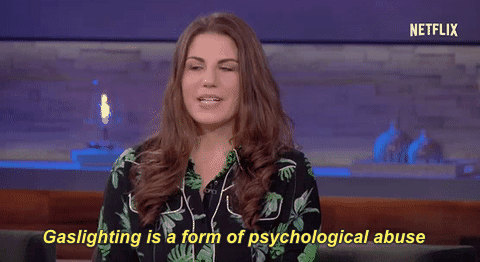
Just about all of us have had someone in our world who was so manipulative that we couldn't help but ask ourselves, "Wait a minute. Am I the one who is crazy here?" They are called gaslighters and they would have it no other way. Their objective is to get you to question your own sanity as it relates to them, even if you have proof and facts to back up your perspective on just how toxic they actually are.
How gaslighters do this is by lying and/or telling you that they didn't say something that you know that they did and/or saying one thing and doing something else (in other words, their words and actions don't add up) and/or insulting you and then complimenting you (they build you up to tear you down) and/or accusing you of things that you know you didn't do.
Basically, they make it their mission to keep you in a state of confusion and uneasiness so that you appear emotionally unstable. The more you question yourself, the more they can take advantage of you. Therein lies their power.
2.Love Bombing
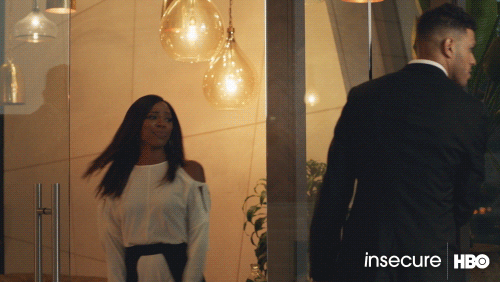
Whew, chile. The love language of a true narcissist is love bombing. At first, they pour it on thick—compliments, gifts, dates, anything that will make you feel totally adored. Although it would be nice if they did that simply because you deserve it (and you do), their ultimate objective is to get you to feel like you need them as a source of love and affection. Then, once your guard is down, the puppet strings begin to come out.
Once you start to show signs of interest in anything or one more than them, they stop complimenting you and start berating you. Now you're the one who is selfish and not worthy of all of the love they are offering, so they pull away, hoping you will feel abandoned and alone.
What the heck does a narcissist (or any other kind of love bomber) get out of doing this? It's a form of "training" you. When you act the way they want you to act, you get rewarded. When you don't, you get criticized; perhaps even ghosted. Ugh. Just ugh.
3.Passive Aggressiveness

Getty Images
The silent treatment. Making excuses. Having a selective memory. Making you feel guilty for what they know is their fault. Not keeping their word. Stubbornness. Making simple things complicated. Playing the victim (when they are actually "the offender"). Living by the phrase "hurt people hurt people". These are all telltale signs of a passive aggressive individual. I personally don't know if I detest any trigger more.
A passive aggressive person doesn't like accountability nor do they want to accept responsibility for their own actions. Just recently, I confronted someone about something they did that was dead wrong. Their response was how much stress they were under at the time. We all have things to feel stressed about. It doesn't take away from us needing to follow through on what we said we would do (and at the very least, apologize when we don't).
If you've got folks in your life where you find yourself apologizing for what they did wrong (it happens more than you think), you've got a passive aggressive individual on your hands. No doubt about it.
4.Perspecticide
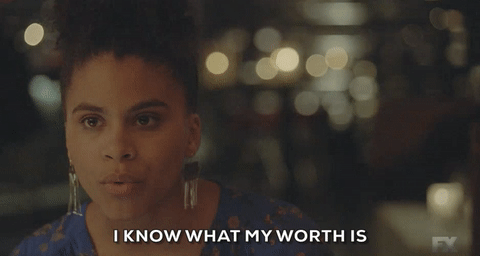
A healthy relationship—whether it's a romantic, platonic, or even a professional one—is going to celebrate the authenticity of who you are. They are not going to try and change you or get you to question your self-worth and value.
That said, if you're involved with anyone who doesn't make you feel very good about yourself (this includes them avoiding slick statements and backhanded compliments), if they create "rules" for how you are to be in your relationship with them (although you don't get to have any expectations from them at all) and/or if you somehow feel micromanaged all of the time—these are all indications that you are a victim of perspecticide.
It's not that what you are or aren't doing is wrong. It's that you've allowed someone to have so much power over your life that their perspective of you trumps your very own. (Scary, isn't?)
5.Trauma Bonding
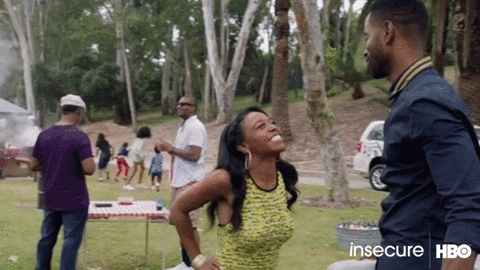
One of my all-time favorite quotes is, "We're all looking for someone whose demons play well with our own." Creepy I know, but basically, it means that sometimes we're in toxic relationships and don't even know it. It's because what we have in common with certain individuals is our weaknesses, not our strengths.
Although this isn't the exact definition of trauma bonding, I personally believe it is a cryptic form of it. So, make sure that you're not connecting with someone simply because you can relate to one another's crap. If that's all you have going on, all you're doing is—as my mother puts it—emotionally throwing-up on each other. And making each other sick in the process.
As far as the clinical definition of trauma bonding, it's when you're caught up in the cycle of idealization, devaluation, and discarding with someone. They build you up, then they make you question your value, and then they discard you like you were nothing without rhyme, reason, or warning. But since the good times were so good, you sometimes let them do this to you on multiple occasions before finally breaking things off.
Why would someone put up with trauma bonding? Because they don't realize that's what's happening to them. But if someone in your life is always making promises they don't keep, if they give you the silent treatment when you displease them, if your friends are constantly telling you that you could do better than the foolishness you're tolerating with an individual and/or if you keep saying you know that you should leave BUT YOU DON'T—these are all signs that point to being in a trauma bond.
The bad times outweigh the good, but you stick around for the next cycle of good times anyway. That is trauma bonding at its finest. And ugliest.
6.Dismissiveness

A dismissive person is a disrespectful individual—point blank and period. If I were to think of someone who immediately falls into this category, ghosters would have to be one of them. Other examples include people who don't deal with confrontation well, folks who don't like to express emotion, individuals who choose to multi-task while you are trying to have a serious conversation with them, people who are vague when you ask direct questions—oh and commitment-phobes. Some trigger statements that dismissive people tend to make is "Are you still on that?", "When are you gonna get over it?" or "Just move on."
Personally, I think the most frustrating thing about dismissive people is they treat you and your emotions like they are disposable. Or like you are a human ACT test. I say that because some of you might recall how some preppers told us to take it—Scan, Select, Discard, Move On.
You are not a high school proficiency exam. Don't tolerate anyone treating you as such.
7.Deflecting
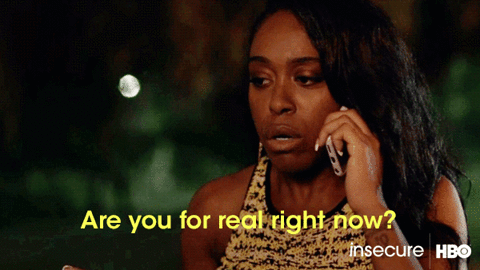
Giphy
Next to passive aggressiveness, deflecting is one of my other biggest triggers. I used to have a lot of deflectors in my personal space (I nipped that) and I see it quite a bit in marriage life coaching sessions too. It's basically when someone is wrong—dead wrong—but they try and find a way to get your mind off of it, oftentimes by changing the subject, pointing out that you do the same thing, or bringing up what they think is worse.
Example. You might say, "I really hate that you waste my time by always showing up late." A non-deflector would say something like, "I'm sorry. I'll work to get better at that." A deflector? They're gonna say something immature like (cue the nah-nah-nah-nah-nah voice), "You're late sometimes too" or worse, "Well, I hate that you cut me off when I'm talking."
OK. But if you hated whatever it is that I'm doing so much, why are you waiting until I bring up something that irritates me in order to discuss it? A deflector doesn't want to deal with their stuff. And it's really hard to be in a healthy relationship with anyone who refuses to face things head on.
8.LWS: Last Word Syndrome

Getty Images
I used to be this girl and I realize it was because, while growing up, I didn't feel like my voice was heard or respected very much. So, as an adult, I made sure that it would be—no matter how annoying this approach might've been.
About 9.5 times out of 10, a person who suffers from last word syndrome isn't even one-eighth as interested in what you have to say as what they've already said or what they plan on saying next. It's feeling like your insights and perspectives aren't respected or even appreciated that tends to be the source of your frustration while interacting with them. I get it but take it from someone who has gotten fully free from this—people who need to have the last word are insecure; they are still working through how to embrace the internal power that they have, both with and without a sounding board.
One of my favorite proverbs is, "Don't speak unless you can improve upon the silence." It's one of the best ways to handle someone with this particular syndrome. And once you call out all of these triggers—and trigger-ers—it's also one of the best ways to internally detonate how you react in the future to these kinds of people too.
Related Articles:
3 Warning Signs You're In Love With A Narcissist - Read More
Here Are The Dating Trends That You Need To Avoid At All Costs - Read More
Seven 2019 Dating Terms That You Should Definitely Be Aware Of - Read More
- Like, Love & In Love: How To Really Know The Differences - xoNecole ›
- 6 Ways To Tell Someone Is Gaslighting You - xoNecole: Women's Interest, Love, Wellness, Beauty ›
- Like, Love & In Love Meaning - xoNecole: Women's Interest, Love, Wellness, Beauty ›
- Signs Someone Is Gaslighting You - xoNecole: Women's Interest, Love, Wellness, Beauty ›
- What Exactly Is Toxic Masculinity? - xoNecole: Women's Interest, Love, Wellness, Beauty ›
- Breadcrumbing 2022 Dating Trend, What Is It? - xoNecole: Women's Interest, Love, Wellness, Beauty ›
- What Exactly Is Broken Heart Syndrome? - xoNecole: Women's Interest, Love, Wellness, Beauty ›
- 10 Phrases To Avoid Saying To Your Partner In Relationships - xoNecole: Women's Interest, Love, Wellness, Beauty ›
- 8 Different Types Of Relationships - xoNecole ›
- 5 Signs Your SO Respects Your Triggers, Because Your Mental ... ›
- Ask for feedback but first learn how to receive it — Quartz at Work ›
- Getting Comfortable with Discomfort: Relationship Triggers ›
- 14 Biggest Triggers That Arise In Relationships — And How To Deal ... ›
- If Your Relationship Triggers You, Here's Why... — Center for Soulful ... ›
- 9 Most Common Triggers for Bipolar Mood Episodes | Everyday Health ›
- Understanding Borderline Personality Disorder Triggers ›
- Releasing Emotional Triggers in Relationships - The Overwhelmed ... ›
- 5 Steps for Managing Your Emotional Triggers | Psychology Today ›
- What Are Emotional Triggers + Why You Need To Understand Them ... ›
This Is How To Keep 'Holiday Season Stress' From Infecting Your Relationship
Hmph. Maybe it’s just me, but it seems like there is something really weird happening in the fall season air (because winter doesn’t officially begin until December 21) that cuddle season is in full swing while break-up season is as well. In fact, did you know that break-ups are so popular during the holiday season that December 11 is deemed Break-Up Day?
The reasons why relationships shift around this time vary; however, I did both roll my eyes and chuckle when I read that a very popular one is because it’s an easy way to get out of getting one’s significant other a Christmas present. SMDH.
Anyway, I personally think that the less shallow folks out here may contemplate calling things “quits” or they at least distance themselves a bit from their partner (and what I’m referring to is serious relationships) due to all of the stress and strain that oftentimes comes with the holidays whether it be financial, familial, due to their tight schedules or something else.
Listen, I would hate for you and your man to miss the fun and happiness of experiencing this time of year, all because you are so overwhelmed or irritated that you can’t really enjoy it. That’s why I have a few practical tips for how to avoid allowing the typical holiday season stress from INFECTING your relationship.
Manage Your Expectations
 Giphy
GiphyUnmanaged expectations. If there is a main reason why the holiday season tends to be so stress-filled for so many people, I’d bet good money that this is the cause. And when you’re in a long-term relationship, expectations can manifest themselves in all sorts of cryptic and/or unexpected ways. You might have relatives who assume that you are going to be with them for Thanksgiving or Christmas when you have other plans in mind. You might be thinking that you are going to spend one amount for presents while your man is thinking something totally different. When it comes to scheduling, your signals may be crossed.
And you know what? To all of these scenarios, this is where clear and consistent communication come in. Don’t assume anything. Don’t dictate anything either. From now until New Year’s, mutually decide to check in once a week, just to make sure that you are both on the same page as it relates to the holidays and what you both are thinking will come along with it. The less blindsided you both feel, the less stressed out you will be. Trust me on this.
Set (and Keep) a Budget
 Giphy
GiphyOkay, so I read that last year, 36 percent of Americans incurred some type of holiday-related debt. Hmph. Last year, there was still some sense of normalcy in this country, chile, so I can only imagine what finances are gonna look like over the next several weeks. That said, since I don’t know a lot of people who don’t find being broke stressful, make sure that you and your bae set a budget and then stick to it this year — no ifs, ands or buts.
Because really, y’all — it doesn’t make sense to deplete savings and/or max out credit cards for a few days of giggles only to be damn near losing your mind because you don’t know how to make ends meet come Dr. Martin Luther King, Jr. Day.
And by the way, this tip doesn’t just speak to things like food and gifts; I also mean travel. If it doesn’t make a ton of sense (or cents) to be all over the place this year — DON’T BE.
Keep Matthew 5:37 at the Forefront
 Giphy
GiphyIf off the top of your head, you don’t know what Matthew 5:37 says, no worries, here ya go: “But let your ‘Yes’ be ‘Yes,’ and your ‘No,’ ‘No.’ For whatever is more than these is from the evil one.” That verse right there? Oh, it’s a boundaries lifesaver! I say that because do you see “maybe” or “I’ll think about it” in there? Nope. LOL. It says that you should tell people “yes” or “no” and leave it at that — and that complements Anne Lamott’s quote, “’No’ is a complete sentence” impeccably well. Yeah, you’ve got to remember that anything beyond a yes or no to a request is privileged information; you don’t owe anyone details or an explanation.
Besides, if you are really honest with yourself, when someone asks you something and you give a “Umm, let me think about it” kind of reply, more times than not, you already know what your answer is going to be — so why not let you both off of the hook? Give your response. Commit to that. And let everyone (including yourself) get on with their lives and schedules.
I promise you that when it comes to those holiday parties, you are pissing more folks off by not RSVP’ing or doing so and not showing up than just saying, “Thank you but not this year” off the rip.
Remember That Your Personal Space Is Privilege Not a Right
 Giphy
GiphyA friend of mine recently bought a new house and invited me over to come see it. He’s a single man with no children, so as I was taking in all of the space that he had, especially as I walked through his finished basement, I joked about relatives coming to live with him. “Hell no” and “absolutely not” were pretty much his immediate responses as he went on to say that some folks even had the nerve to be offended when he told them that he had no intentions on taking DNA in.
Ain’t it wild how people think that your stuff is their right? And yes, that brings me to my next point. Your home is your sanctuary space. If you want to host folks this year — cool. If not, ALSO COOL. Please don’t let folks (family included) guilt you into how they want you to act or even into what they would do if the shoe was on the other foot. You are not them — and as one of my favorite quotes states, “If two people were exactly alike, one of them would be unnecessary.” (A man by the name Larry Dixon said that.)
Hell, my friends? They know that I am good for sending them random things that they need or even want all throughout the year. Coming over to hang out at my pace, though. Uh-uh. Chalk it up to being a card-carrying member of the ambivert club yet I like keeping my living space personal — and I sleep like a baby, each and every night, for feeling that way.
Always remember that your space, your time, your resources, your energy and shoot, yourself period (including your relationship), are all things that are your own. You get to choose how, when and why you want to share them. The holiday season is certainly no exception.
Cultivate Some “You Two Only” Traditions
 Giphy
GiphyIt’s not uncommon for some couples to hit me up after the holiday season to “detox.” Sometimes it’s due to the financial drama (and sometimes trauma) that they experienced. Sometimes it’s because they allowed their relatives (especially in-laws) to get more into their personal business than they should’ve. More than anything, though, it tends to be because they didn’t get enough quality time together and so ended up feeling “disconnected.”
Please don’t let that happen. Listen, I’m not even a holidays kind of woman and yet, I will absolutely sit myself down with some hot chocolate and chocolate chip cookies to enjoy a Hallmark holiday film or two. Aside from the fact that most of them are lighthearted and sweet, I also like that they usually focus on couples loving on each other amidst all of the holiday beauty and ambiance — which is something that all couples should set aside some time to do.
Maybe it’s a vacation. Maybe it’s a staycation. Or maybe it’s my personal favorite, A SEXCATION. Whether it’s for a few days, the weekend or even overnight — don’t you let the holidays go by without setting aside time for you and your man to celebrate one another. Don’t you dare (check out “Are You Ready To Have Some Very Merry 'Christmas Sex'?”).
GET. SOME. REST.
 Giphy
GiphyI once read that 8 out of 10 people get stressed out over the holidays and 3 out of 10 lose sleep during to it — and when you’re stress-filled and sleep-deprived, that can absolutely lead to hypersensitivity, making mountains out of molehills and even not being in the mood for sex.
Your relationship can’t afford to go through any of this, so definitely make sure to prioritize rest. I don’t care how unrealistic it might seem during this time, sleep should never be seen as a luxury; it will always and forever be a great necessity.
That said, try to get no less than six hours of shut-eye in (check out “6 Fascinating Ways Sex And Sleep Definitely Go Hand In Hand”) and even ask your bae to take a nap with you sometimes (check out “Wanna Have Some Next-Level Sex? Take A Nap, Sis.”). Not only will sleep help to restore your mind, body and spirit but, when it’s with your partner, it’s an act of intimacy that can make you both feel super connected, even in the midst of what might feel like chaos.
___
Holiday season stress is real. Still, never give it the permission or power to throw your relationship off. Put you and your man first and let the holidays be what they are gonna be, chile.
Let’s make things inbox official! Sign up for the xoNecole newsletter for love, wellness, career, and exclusive content delivered straight to your inbox.
Featured image by Shutterstock
How To Avoid Being An Emotionally Impulsive Spender This Holiday Season
Geeze. Can you believe that we are just a few days out from another Christmas? Yeah, me neither. In fact, because I’m not a holidays person myself (check out “So, What If You Don't Observe Holidays?”), it wasn’t until one of my clients was venting about how stressed out she was due to all of the holiday season procrastinating that she had been doing that I realized just how fast December is actually flying by.
If, like her, you’re feeling frazzled because, although you told yourself last year that you weren’t going to wait until the last minute to “handle your business,” you ended up doing exactly that, fret not. I’ve got 10 tips that can keep you from making emotionally-triggered decisions as far as your financial expenses are concerned. Merry Christmas. #wink
1. Create a Budget. Stick to It.
 Giphy
GiphyBudgets, boy. I recently read that one of the reasons why they don’t work for a lot of people is because many folks don’t have a clue about how much money they spend on a monthly basis to begin with. SMDH. That said, at the end of the day, it’s important to remember that a budget is simply setting boundaries/limits on your spending — and being intentional about moving in this fashion is always a wise move; especially when it comes to this time of the year…especially being that it’s typical for half of all Americans to take on some type of holiday season debt with 17 percent needing six (or more) months to pay it off.
Know what can prevent this kind of financial chaos? A SPENDING BUDGET. Tips for how to create one of your own this year can be found here.
2. Never Shop When You’re Stressed or Pressed
 Giphy
GiphyYou know how they say that it’s not a good idea to go grocery shopping when you’re hungry? Although the holiday season can be a stressful time, avoid shopping for gifts (or décor or food for recipes) when you are feeling stressed out or pressed for time. More times than not, that cultivates anxiety which could cause you to either purchase things that you don’t really want or to spend money that you don’t really have (P.S. If you’re relying on credit cards, that qualifies as money that you don’t really have. Just sayin’).
3. Don’t Keep Up with the Joneses
 Giphy
GiphyKnow something else that can stress you out: trying to keep up with the Joneses. And y’all, now that we have social media, the reality is that envy is at an all-time high. That’s because it can be really easy to watch holiday engagements, holiday trips and folks bragging about the things that they’ve received in times past, only for you to find yourself wishing that you were them — or putting pressure on yourself and those in your world to keep up.
Listen, it is King Solomon who once said, “So are the ways of everyone who is greedy for gain; It takes away the life of its owners” (Proverbs 1:19 — NKJV) and “A sound heart is life to the body, but envy is rottenness to the bones” (Proverbs 14:30 — NKJV) and he’s considered to be the wisest man who ever lived (during his time — I Kings 4:30). Yeah, both of these verses are a spiritual reminder that whatever you are planning to do or give, do it out of the goodness of your heart — not so that you can low-key “outdo” the next guy.
4. No Need to “Tit-for-Tat”
 Giphy
GiphyThis one might be a bit controversial yet I’m totally okay with that. I don’t care what the occasion is, no one is OWED a present. A gift is a voluntary token of one’s appreciation or affection. That said, if you decide to give someone a present this year, don’t automatically expect something in return. If you get something, cool. If not, if you were giving for the right reasons, it really shouldn’t matter (RIGHT?). On the flip side, if someone decides to get you something and you don’t have something to offer in return, also cool.
Other than going to someone’s home for a holiday dinner or party, for anyone to feel like they should have something in hand because someone else does…that’s not giving, that’s competing — and that absolutely should not be the spirit that you are in (or around) during this time of year.
Again, a gift is not an obligatory thing. If you’ve always thought otherwise, it’s time to do some serious reprogramming.
5. Avoid the Pressure to Buy for Lots of Adults
 Giphy
GiphyLast month, Newsweek published an article that said it’s wise to not spend a ton of money purchasing gifts for adults. A financial expert in the piece said that it’s best to buy for kids because, more times than not, you’re going to get adults something that they already have a lot of, they don’t really need or they’re not going to use (beyond maybe regifting) anyway.
If you’re not feeling that insight, my take would be to exchange names and set a price cap for the grown folks. I say that because, I don’t think that people ever outgrow wanting something over Christmas. It’s just that the over-the-top energy should be reserved for the kiddies — and even then, the “4-gift rule” (want, need, read, experience) is probably your best bet for them…financially and otherwise.
6. Go for Thoughtful over Expensive
 Giphy
GiphyIt’s kind of wild how much close-to-torture folks send themselves through to purchase gifts that, a good 6-8 months now, most folks aren’t even going to remember. That’s why it’s also a good idea to purpose in your mind to get something thoughtful over expensive.
Honestly, that’s a big part of the reason why Etsy continues to be a go-to for gifts (for every occasion) for me. It’s because you can oftentimes get things customized/personalized which ends up meaning so much more to people than something that you bought at a generic department store that might have a high price tag yet still lacks in sentimentality and deep meaning.
7. Use Coupons and Promo Codes
 Giphy
GiphyCoupons (and promo codes) are a slippery slope in the sense that…they remind me of when I used to go overboard while thrift store shopping. I say that because, just because I might find several bomb dresses for under $20, what am I going to do with 50 of ‘em (over time)? It’s just as much of a waste of money as buying couture if neither option gets much use.
And that’s kind of the thing about coupons and promo codes. Some people end up overspending because they rationalize that so long as there are discounts attached, it’s all good. At the same time, this doesn’t mean that you should forego coupons and promo codes altogether. The key is to put together your shopping list (and budget) and then use discounts specifically for those items. If you do this, you could save well over $1,000 annually (at least, depending on what you decide to buy).
8. Avoid Add-Ons
 Giphy
GiphyYeah. Dodge add-on expenses. Add-ons like what? The first thing that comes to my mind is a warranty. What’s the chance that someone is actually going to need that? Another example is paying for things to be “professionally” gift wrapped. Chile, throw that stuff in a gift bag with some tissue paper and go on about your day. All good.
9. Rethink Gift Cards
 Giphy
GiphyIf there is any time of the year when there is a noticeable hike in gift card purchases, now would be it. And although they are a convenient approach to gift giving, at the same time, many come with hidden fees, the full amount oftentimes goes unused (which ends up being a waste of money) and they do come with expiration dates that are oftentimes forgotten.
So, if you’re someone who likes to wait until the last minute to do your holiday shopping, resist the urge to impulsively pick up a handful of gift cards. Unless it’s to a place that you know someone is going to use within the next few months, they could end up in somebody’s kitchen drawer for the next couple of years. And what a waste that would be.
10. They’ll Get It When They Do. And That’s Okay.

=
GiphyOne more. Although it is super thoughtful and proactive to get people their gifts in time for whatever occasion you purchased them for, if trying to reach that goal is going to require paying for rush shipping that is damn near as high as the price of gift or spending a lot of gas money that you don’t have at the moment to drive miles and miles away — take the pressure off to spend a ton of cash just to make sure that something arrives at December 25. Listen, through doing business with Etsy, I have learned that through this administration, there are all sorts of tariff issues going on and the USPS is slower than ever too, so paying more may not guarantee much.
The hack? Send a message that something special is coming…soon enough. The thought really is what counts (more times than not); plus, it builds anticipation of something good coming, even if it’s after all of the Christmas Day hoopla. And no one (with sense) is going to have a problem with that.
Now don’t you feel better? Happy Holiday Shopping, sis.
Let’s make things inbox official! Sign up for the xoNecole newsletter for love, wellness, career, and exclusive content delivered straight to your inbox.
Featured image by Shutterstock










